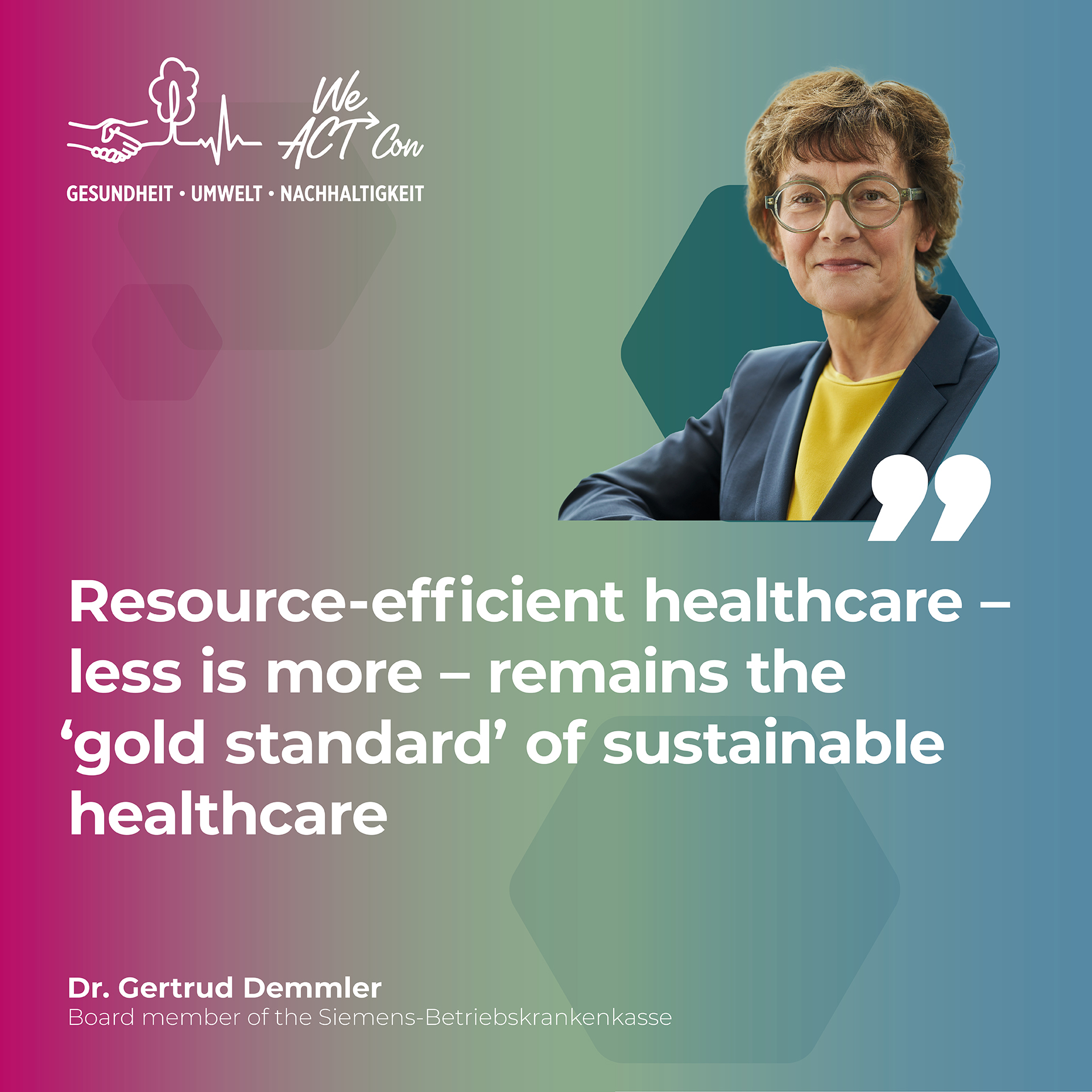
3 questions for Dr Gertrud Demmler
The gold standard? “Resource-efficient health care”
Dr Gertrud Demmler is the head of the Siemens company health insurance fund. At WeACT Con 2025, she will be taking part in a panel discussion with politicians and association representatives. A conversation about the challenges of sustainable healthcare.
Interview: WeACT Con
1
Dr Demmler, what limits do you encounter on the path to greater sustainability in healthcare?
Gertrud Demmler: I wouldn't say that we are coming up against "boundaries". Rather, I see the sustainable transformation as being characterised by negotiation processes between the various interests. This is often very tough, but in my view it is also necessary - in all sectors and certainly particularly in the healthcare sector. This is because it is particularly challenging to balance social and ecological interests. If, for example, high environmental standards are demanded for the production of medicines, prices will rise. The insured pay the bill. It is therefore important to find a good way forward in consultation with as many stakeholders as possible that takes both interests into account appropriately. Resource-conserving healthcare - less is more - remains the "gold standard" of sustainable healthcare.
My conclusion: sustainable development is already possible in the healthcare sector today. We have to face up to the debates on this, even if it is tedious. And sometimes a little more creativity is required in the healthcare sector to find solutions through the complex regulations.
2
Where have you or others succeeded in overcoming such boundaries?
The discount agreements for generics with sustainability criteria are a good example of this. There have always been many concerns about such tenders that take ecological and social criteria into account. Is it legally sound? Can a good price be achieved? Together with our partner, GWQ Service Plus AG, we looked for solutions together with other company health insurance funds. In the end, we succeeded in bringing together an alliance of 37 company health insurance funds to participate in a first sustainable tender. In this tender, we require the bidding pharmaceutical companies to submit recognised environmental certificates. In the end, we achieved a very positive result. Not only in terms of the price. The feedback from the pharmaceutical industry was also often positive. GWQ is now planning the third tender of this kind.
3
What needs to happen so that we as a society or you personally can break down these barriers in your field of activity?
I would like those working in the healthcare sector to establish a "culture of doing". We can shape and act sustainably. We can and must start in our own environment, identify areas for action and look for solutions - regardless of new regulations and laws.
I would like politicians to create clear framework conditions and a fair competitive environment. Especially when it comes to the necessary investments in the future - from reorganising the healthcare landscape to ensuring sufficient climate-friendly energy - everyone involved needs transparency and planning security. I would also like to see a solid plan for how the investments will be financed fairly.
I would like to see a culture of debate in society that is characterised by respect and foresight. Listening and engaging with other points of view is important in order to move forward as a society. Of course, the necessary dialogue also needs more facts and less opinion.
